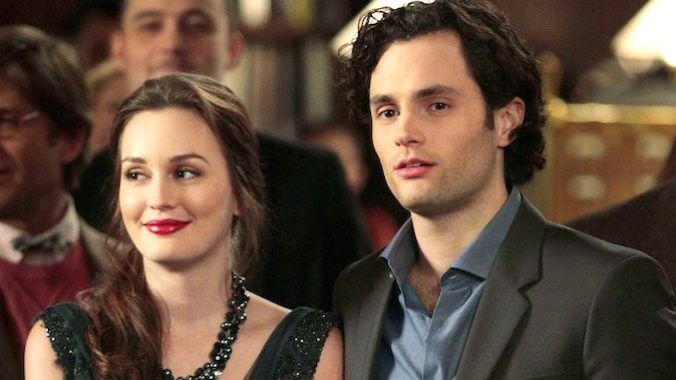It Still Stings: Gossip Girl Dared to Dair, Then Took It Back
Photo Courtesy of The CW
Editor’s Note: TV moves on, but we haven’t. In our feature series It Still Stings, we relive emotional TV moments that we just can’t get over. You know the ones, where months, years, or even decades later, it still provokes a reaction? We’re here for you. We rant because we love. Or, once loved. And obviously, when discussing finales in particular, there will be spoilers:

When it comes to the original run of Gossip Girl, there’s a lot that still stings. The finale is what lingers for many viewers, especially the infamously nonsensical unmasking of Gossip Girl (a reveal I’ll ignore for the rest of this piece, because there’s really no use in trying to make it make sense). But the problems with Gossip Girl started a lot earlier, as early as Season 3 or even 2. Season 5, in my estimation, is when the show definitively turned from pretty good to pretty bad, a turn it couldn’t recover from. And yet that season has one delightful bright spot—in fact, one of the strongest storylines of the whole show. I’m referring, of course, to the polarizing love story of Blair Waldorf (Leighton Meester) and Dan Humphrey (Penn Badgley), one of the greatest teen drama romances of all time—while it lasted. And nothing stings more, in my book, than its premature ending.
When many old fans look back at Gossip Girl, they tend to think of the ship nicknamed “Dair” as an unfortunate footnote in the true love story of the show: that of Chuck Bass (Ed Westwick) and Blair—aka “Chair.” And to be sure, Chuck and Blair do have a larger-than-life appeal in the first few seasons, a magnetic bond based on a shared penchant for deliciously twisted schemes. If you haven’t revisited the show since its airing, it’s easy to remember them as obvious soul mates, destined to end up together.
The problem, of course, is that once Chuck and Blair enter a real relationship, Chuck repeatedly reveals himself to be an emotionally abusive partner, addicted to manipulating and controlling the woman he’s supposed to love. In Season 3, he infamously trades her for a hotel, a breaking point for many viewers; to me, the real point of no return is near the end of Season 4, when he reacts to news of Blair’s engagement by drunkenly punching a glass wall above her, cutting her face in the process. Chuck’s actions throughout that season are textbook examples of domestic violence, a fact pointed out by plenty of critics at the time. (The HBO Max Gossip Girl pilot later had one character refer to the ship as “pre-cancel culture.”)
It’s one thing to ask viewers to root for a toxic relationship; if the chemistry is still strong and the audience wants to forgive a character, they will. Perhaps the bigger problem is just how boring it gets following Chuck and Blair’s constant back-and-forth over 121 episodes. The same goes for Dan and Serena van der Woodsen (Blake Lively), the other original romance of the show, who eventually become step-siblings and later return to each other’s arms more out of inertia and familiarity than any convincing “true love.” (Badgley often looks dead behind the eyes in his later scenes with Lively; he only really comes alive with Meester.)
-

-

-

-

-

-

-

-

-

-

-

-

-

-

-

-

-

-

-

-

-

-

-

-

-

-

-

-

-

-

-

-

-

-

-

-

-

-

-

-








































